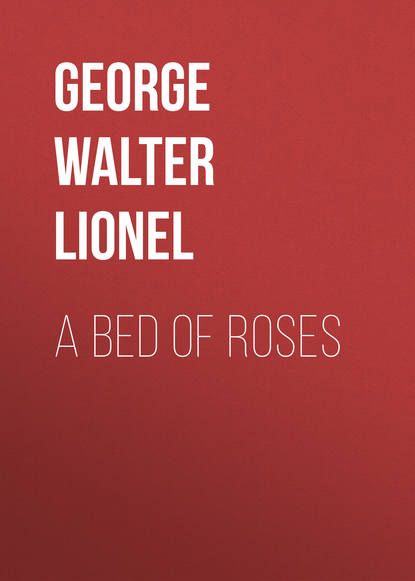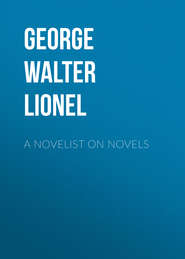По всем вопросам обращайтесь на: info@litportal.ru
(©) 2003-2024.
✖
A Bed of Roses
Настройки чтения
Размер шрифта
Высота строк
Поля
'Jack,' she said softly, 'the world's a hard place for women. It takes from them either hard labour or gratification. I've done my best. For a whole year I worked. I worked ten hours a day, I've starved almost, I've swabbed floors..'
He withdrew his hand with a jerk. He could bear that even less than her confession.
'Then a man came,' she went on relentlessly, 'a good man who offered me ease, peace, happiness. I was poor, I was ill. What could I do? Then he died and I was alone. What could I do? Ah, don't believe mine is a bed of roses, Jack!'
He had turned away, and was looking into the dying fire. His ideals, his prejudices, all were in the melting pot. Here was the woman who had been his earliest dream, degraded, irretrievably soiled. Whatever happened he could not forget; not even love could break down the terrific barrier which generations of hard and honest men of Rawsley had erected in his soul between straight women and the others. But she was the dream still: beautiful, all that his heart desired; such that (and he felt it like an awful taunt) he could not give her up.
He looked at her, at her sorrowful face. No, he could not let her pass out of his life. He thought of disjointed things. He could see his mother's face, the black streets of Rawsley; he thought of the pastor at Bethlehem denouncing sin. All his standards were jarred. He had nothing to hold on to while everything seemed to slip: ideals, resolutions, dreams; nothing remained save the horrible sweetness of the mermaid's face.
'Let me think,' he said hoarsely, 'let me think.'
Victoria said nothing. He was in hands stronger than hers. He was fighting his tradition, the blood of the Covenanters, for her sake. Nothing that she could say would help him; it might impede him. He had turned away; she could see nothing of his face. Then he looked into her eyes.
'What was can never be again,' he said, 'what I dreamed can never be. You were my beacon and my hope. I have only found you to lose you. If I were to marry you there would always be that between us, the past.'
'Then do not marry me. I do not ask you to.' Her voice went down to a whisper and she put her hands on his shoulders. 'Let me be another, a new dream, less golden, but sweet.'
She put her face almost against his, gazing into his eyes. 'Do not leave this house and I will be everything for you.'
She felt a shudder run through him as if he would repel her, but she did not relax her hold or her gaze. She drew nearer to him, and inch by inch his arms went round her. For a second they swayed close locked together. As they fell into the deep arm chair her loose black hair uncoiled, and, falling, buried their faces in its shadow.
CHAPTER XVI
The months which followed emerged but slowly from blankness for these two who had joined their lives together. Both had a difficulty in realising, the woman that she had laid the coping stone of her career, the man that he was happy as may be an opium eater. The first days were electric, hectic. Victoria felt limp, for her nerves had been worn down by the excitement and the anxiety of making sure of her conquest. The reaction left her rather depressed than glowing with success. Jack was beyond scruples; he felt that he had passed the Rubicon. He was false to his theories and his ideals, in revolt against his upbringing. At the outset he revelled in the thought that he was cutting himself adrift from the ugly past. It was joyful to think that the pastor in his whitewashed barn would covertly select him as a text. For the first time in his fettered life he saw that the outlaw alone is free; both he and Victoria were outlaws, but she had tasted the bitterness of ostracism while he was still at the stage of welcoming it.
As the weeks wore, however, Victoria realised her position better and splendid peace flowed in upon her. She did not love Holt; she began even to doubt whether she could love any man if she could not love him, this handsome youth with the delicate soul, grace, generosity. It was not his mental weakness that repelled her, for he was virile enough; nor was it the touch of provincialism against which his intelligence struggled. It was rather that he did not attract her. He was clever enough, well read, kind, but he lacked magnetism; he had nothing of the slumberous fire which distinguished Farwell. His passion was personal, his outlook theoretical and limited; there was nothing purposeful in his ideas. He had no message for her. In no wise did he repel her, though. Sometimes she would take his face between her hands, look awhile into the blue eyes where there always lurked some wistfulness, and then kiss him just once and quickly, without knowing why.
'Why do you do that, Vicky,' he asked once.
She had not answered but had merely kissed his cheek again. She hardly knew how to tell him that she sighed because she could only consent to love him instead of offering to do so. While he was sunk in his daily growing ease she was again thinking of ultimate ends and despised herself a little for it. She had to be alone for a while before she could regain self-control, remember the terrible tyranny of man and her resolve to be free. Gentle Jack was a man, one of the oppressors, and as such he must be used as an instrument against his sex. The very ease with which she swayed him, with which she could foresee her victory, unnerved her a little. When she answered his hesitating question as to how much she needed to live, she had to force herself to lie, to trade on his enslavement by asking him for two thousand a year. She dared to name the figure, for Whitaker told her that the only son of an intestate takes two-thirds of the estate; the book had also put her on the track of the registration of joint-stock companies. A visit to Somerset House enabled her to discover that some three hundred thousand shares of Holt's Cement Works, Ltd., stood in the name of John Holt; as they were quoted in the paper something above par he could hardly be worth less than fifteen thousand a year.
She had expected to have to explain her needs, to have to exaggerate her rent, the cost of her clothes, but Holt did not say a word beyond 'all right.' She had told him it hurt her to take money from him; and that, so as to avoid the subject, she would like him to tell his bankers to pay the monthly instalments into her account. He had agreed and then talked of their trip to the South. Clearly the whole matter was repugnant to him. As neither wanted to talk about it the subject was soon almost forgotten.
They left England early in December after shutting up the house. Victoria did not care to leave it in charge of Laura, so decided to give her a three months' holiday on full pay; Augusta accompanied them. The sandy-haired German was delighted with the change in the fortunes of her mistress. She felt that Holt must be very rich, and doubted not that her dowry would derive some benefit from him. Snoo and Poo were left in Laura's charge. Victoria paid a quarter's rent in advance, also the rates; insured against burglary, and left England as it settled into the winter night.
The next three months were probably the most steadily happy she had ever known. They had taken a small house known as the Villa Mehari just outside Algiers. A French cook and a taciturn Kabyl completed their establishment. The villa was a curious compromise between East and West. Its architect had turned out similar ones in scores at Argenteuil and Saint Cloud, saving the minaret and the deep verandah which faced the balmy west. From the precipitous little garden where orange and lime trees bent beneath their fruit among the underbrush of aloes and cactus, they could see, far away, the estranging sea.
The Kabyl had slung a hammock for Victoria between a gate-post and a gigantic clump of palm trees. There she passed most of her days, lazily swinging in the breeze which tumbled her black hair; while Jack, lying at her feet in the crisp rough grass, looked long at her sun-warmed beauty. The days seemed to fly, for they were hardly conscious of the recurrence of life. It was sunrise, when it was good to go into the garden and see the blue green night blush softly into salmon pink, then burst suddenly into tropical radiance: then, vague occupations, a short walk over stony paths to a café where the East and West met; unexpected food; sleep in the heat of the day under the nets beyond which the crowding flies buzzed; then the waning of the day, the heat settling more leaden; sunset, the cold snapping suddenly, the night wind carrying little puffs of dust, and the muezzin, hands aloft, droning, his face towards the East, praises of his God.
Holt was totally happy. He felt he had reached Capua, and not even a thought of his past life could disturb him. He asked for nothing now but to live without a thought, eating juicy fruit, smoking for an hour the subtle narghilé; he loved to bask in the radiance of the African sun of Victoria's beauty, which seemed to expand, to enwrap him in perfume like a heavy narcotic rose. In the early days he tried to work, to attune himself to the pageant of sunlit life. His will refused to act, and he found he could not write a line; even rhymes refused to come to him. Without an effort almost he resigned himself into the soft hands of the East. He even exaggerated his acceptance by clothing himself in a burnous and turban, by trying to introduce Algerian food, couscous, roast kid, date jam, pomegranate jelly. At times they would go into Algiers, shop in the Rue Bab-Azoum, or search for the true East in what the French called the high town. But Algiers is not the East; and they quickly returned to the Villa Mehari, stupefied by the roar of the trams, the cries of the water and chestnut vendors, all their senses offended by the cafés on the wharf where sailors from every land drank vodka, arrack, pale ale, among zouaves and chasseurs d'Afrique.
Sometimes Holt would go into Algiers by himself and remain away all day. Victoria stayed at the villa careless of flying time, desultorily reading Heine or sitting in the garden where she could play with the golden and green beetles. Her solitude was complete, for Holt had avoided the British consul and of course knew none of the Frenchmen. She watched the current of her life flow away, content to know that all the while her little fortune was increasing. England was so far as to seem in another world. Christmas was gone; and the link of a ten pound note to Betty, to help to furnish the house at Shepherd's Bush, had faded away. When she was alone, those days, she could not throw her mind back to the ugly, brutish past, so potently was the influence of the East growing upon her being. Then in the cool of the evening Jack would return, gay, and anxious to see her, to throw his arms round her and hold her to him again. Those were the days when he brought her some precious offering, aqua-marines set in hand-wrought gold, or chaplets of strung pearls.
'Jack,' she said to him one day as he lay in the grass at her feet, 'do you then love me very much?'
'Very much.' He took her hand and, raising himself upon his elbow, gravely kissed it.
'Why?'
'Because you're all the poetry of the world. Because you make me dream dreams, my Aspasia.'
She gently stroked his dark hair.
'And to think that you are one of the enemy, Jack!'
'One of the enemy? what do you mean?'
'Man is woman's enemy, Jack. Our relation is a war of sex.'
'It's not true.' Jack flushed; the idea was repulsive.
'It is true. Man dominates woman by force, by man-made law; he restricts her occupations; he limits her chances; he judges of her attire; he denies her the right to be ugly, to be old, to be coarse, to be vicious.'
'But you wouldn't – '
'I'd have everything the same, Jack.'
Holt thought for a moment.
'Yes, I suppose we do keep them down. But they're different. You see, men are men and – '
'I know the rest. But never mind, Jack dear, you're not like the others. You'll never be a conqueror.'
Then she muzzled him with her hand, and, kissing its scented palm, he thought no more of the stern game in which they were the shuttlecocks.
The spring was touching Europe with its wings; and here already the summer was bursting the seed pods, the sap breaking impatiently through the branches. All the wet warmth of the brief African blooming ran riot in thickening leaf. The objective of Jack's life, influenced as he was by the air, was Victoria and the ever more consuming love he bore her; the minutes only counted when he was by her side, watching her every movement, inhaling, touching her. All his energies seem to have been driven into this narrow channel. He was ready to move or to remain as Victoria might direct; he spoke little, he basked. Thus he agreed to extending their stay for a month; he agreed to shorten it by a fortnight when Victoria, suddenly realising that her life force was wasting away in this enervating atmosphere, decided to go home.
Victoria's progress to London was like the march of a conqueror. She stopped in Paris to renew her clothes. There Jack knew hours of waiting in the hired victoria while his queen was trying on frocks. He showed such a childish joy in it all that she indulged her fancy, her every whim; dresses, wraps, lace veils, furs, hats massive with ostrich feathers, aigrettes, delicate kid boots, gilt shoes, amassed in their suite. Jack egged her on; he rioted too. Often he would stop the victoria and rush into a shop if he saw something he liked in the window, and in a few minutes return with it, excitedly demanding praise. He did not seem to understand or care for money, to have any wants except cigarettes. He followed, and in his beautiful dog-like eyes devotion daily grew.
They entered London on a bustling April day. A biting east wind carried rain drops and sunshine. As it stung her face and whipped her blood, Victoria found the old fierce soul reincarnating itself in her. She opened her mouth to take in the cold English air, to bend herself for the finishing of her task.
CHAPTER XVII
It was in London that the real battle began. In Algiers the scented winds made hideous and unnatural all thoughts of gain. On arriving in London Victoria ascertained with a thrill of pleasure that her bank had received a thousand pounds since October. After disposing of a few small debts and renewing some trifles in the house, she found herself a capitalist: she had about fifteen hundred pounds of her own. The money was lying at the bank and it only struck her then that the time had come to invest it. Her interview with the manager of her branch was a delightful experience; she was almost bursting with importance, and his courteous appreciation of his increasingly wealthy client was something more than balm. It was a foretaste of the power of money. She had known poor men respected, but not poor women; now the bank manager was giving her respectful attention because she had fifteen hundred pounds.
'You might buy some industrials,' he said.
'Industrials? What are they?'
'Oh, all sorts of things. Cotton mills, iron works, trading companies, anything.'
'Cement works?' she asked with a spark of devilry.
'Yes, cement works too,' said the manager without moving a muscle.
'But do you call them safe?' she asked, returning to business.
'Oh, fairly. Of course there are bad years and good. But the debentures are mostly all right and some of the prefs.'







